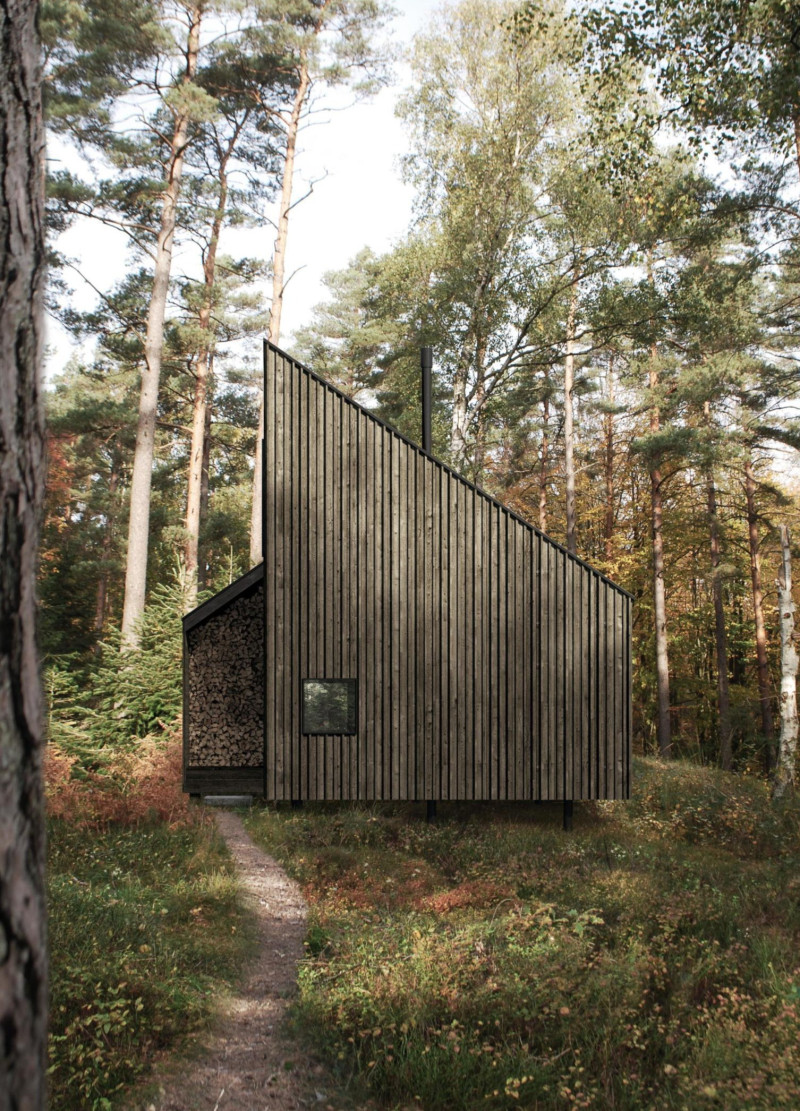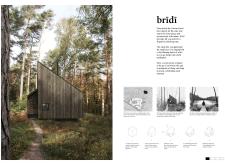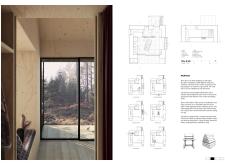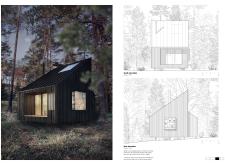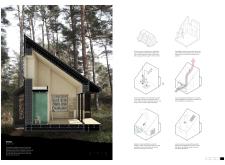5 key facts about this project
Deep within the Latvian forest, Brīdī serves as a retreat designed for meditation and personal reflection. It creates a peaceful environment for individuals looking to escape the stresses of daily life. The concept highlights a strong connection between the structure and the natural landscape, promoting an experience of calm and introspection.
Design Intent
The design prioritizes simplicity and functionality while emphasizing a close relationship with nature. The cabins are placed in existing glades, allowing natural light to fill the interiors without cutting down trees. This thoughtful approach respects the landscape and takes inspiration from traditional rural architecture, providing a familiar and comforting look.
Spatial Organization
The cabin layout is versatile and adaptable. The main room can be used for different activities like yoga and meditation. This space can also extend onto an outdoor terrace, which enhances the connection to the forest. Windows are placed strategically to frame views of the surrounding nature, creating a sense of immersion in the tranquil setting.
Sustainability Features
Sustainable practices are a key focus of Brīdī. The steep roof collects rainwater and captures solar energy, supporting the environmental goals of the design. This roof shape also allows for a loft space, making effective use of the cabin's compact size. Charred wood cladding is used for durability and helps the structure blend in with the forest environment.
Material Selection
Materials for the project reflect a commitment to ecological standards. Slender wood cladding matches the vertical forms of the surrounding trees, enhancing the visual connection. Inside, plywood finishes create warmth and comfort, while Tadelakt plaster used in bathing areas promotes sustainability and a healthy indoor climate. The use of prefabricated straw elements in the construction process reduces the environmental impact and allows for quicker assembly.
The cabin includes systems designed to manage rainwater efficiently. Vegetation helps filter wastewater, maintaining the natural beauty of the site while ensuring functional living spaces.


